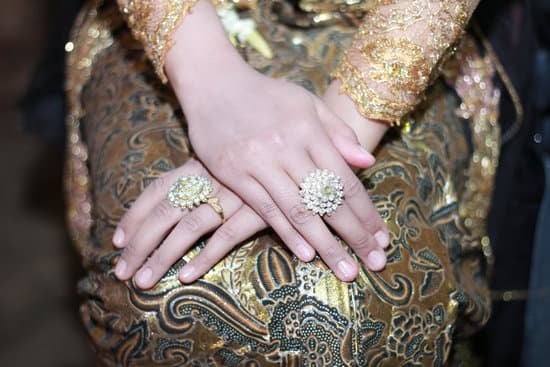What is the going rate for wedding gifts? The tradition of giving wedding gifts holds significant importance in many cultures around the world.
As friends and family come together to celebrate a couple’s union, the act of presenting a gift symbolizes love, support, and well-wishes for their future together. In this article, we will explore the historical perspective of wedding gift-giving, factors that affect the amount spent on gifts, average spending statistics, the significance of personalized gifts, cultural and regional differences in customs, alternative gift ideas, and proper etiquette.
The tradition of giving wedding gifts dates back centuries and has evolved over time. From simple tokens of goodwill to more elaborate and personalized presents, the act of giving has become deeply ingrained in the celebration of marriage. Understanding the tradition’s historical significance helps shed light on its importance in today’s modern world.
When it comes to deciding what to spend on a wedding gift, there are numerous factors to consider. The couple’s relationship to the guests, the location of the wedding, and the financial situation of the guests all play a role in determining the going rate for wedding gifts. We will delve into these various influences and how they impact gift-giving practices.
Historical Perspective
The tradition of giving wedding gifts dates back centuries, with the practice believed to have originated from the dowry system in ancient civilizations. In these early societies, brides were often given gifts or a payment from the groom’s family as a way to provide financial security for the couple. Over time, the custom evolved into a way for guests to offer their support and well-wishes to the newlyweds as they begin their life together.
Historically, wedding gifts were typically practical items that would help the couple establish their new household, such as kitchenware, linens, or livestock. As societies modernized and industrialized, the nature of wedding gifts shifted to reflect changes in lifestyle and priorities. The emphasis on practicality gave way to more personalized and sentimental gifts, with couples often registering for specific items they desire.
In modern times, the evolution of wedding gift-giving has also seen an increase in monetary gifts or contributions towards experiences such as honeymoons or home renovations. While traditional gift-giving still remains prevalent in many cultures, cash gifts have become more common in certain regions or social circles. This shift reflects changing attitudes towards marriage and individual preferences regarding what constitutes a meaningful and valuable gift.
| Key Points | Details |
|---|---|
| Origin of Wedding Gift-Giving | The tradition can be traced back to ancient dowry systems |
| Evolution of Gifts | From practical items to more sentimental and monetary gifts over time |
| Modern Trends | Increase in cash gifts and contributions towards experiences like honeymoons |
Factors Affecting the Going Rate
When it comes to the amount spent on wedding gifts, there are several factors that influence the going rate for these presents. One of the key considerations is the couple’s relationship to the guests. Close relatives and friends may feel inclined to spend more on a wedding gift, while acquaintances or distant relatives may opt for a more modest gift.
Additionally, the location of the wedding can also impact how much guests spend on gifts. For example, weddings held in expensive or desirable locations may prompt guests to spend more on gifts, while those in more affordable areas could lead to less costly presents.
Another important factor that affects the going rate for wedding gifts is the financial situation of the guests. Guests who are experiencing financial hardship may opt for smaller or homemade gifts in order to show their support and affection without breaking their budget. Conversely, guests who are more financially stable might be able to afford larger, more extravagant gifts as a way to celebrate the couple’s special day.
In addition to these factors, cultural and personal expectations can also play a role in determining how much guests spend on wedding gifts. Some cultures may have specific customs or traditions surrounding wedding gift giving that dictate certain spending expectations, while individuals may hold personal beliefs about what makes an appropriate gift based on their values and experiences.
To summarize, when it comes to determining the going rate for wedding gifts, it is essential to consider factors such as the couple’s relationship with the guest, the location of the wedding, and the guest’s financial situation. By taking these elements into account, guests can make thoughtful and considerate decisions about their gift-giving that resonate with both their own means and their relationship with the couple getting married.
Average Spending on Wedding Gifts
Wedding gifts are a significant part of the celebration, symbolizing the support and well-wishes of the guests for the newly married couple. One popular question that often arises when attending a wedding is, “What is the going rate for wedding gifts?” This can be a tricky question to answer as the amount spent on a wedding gift can vary depending on several factors.
The average spending on wedding gifts differs across regions and countries. In the United States, for example, a survey conducted by The Knot found that the average amount spent on a wedding gift in 2020 was $120.
However, this amount could be higher or lower based on various factors such as the relationship between the guest and the couple, location of the wedding, and individual financial situations. In contrast, in European countries like France and Germany, it is common for guests to give cash as a gift, with amounts ranging from €50 to €200 depending on their relationship with the couple.
In Southeast Asian countries like India and Indonesia, giving gold jewelry as a wedding gift is a common practice. The value of these gifts can range significantly based on cultural norms and familial relationships.
It’s essential to consider these cultural differences when attending international weddings or when hosting an international guest list. Ultimately, regardless of where you are located or where the wedding takes place, it’s important to remember that thoughtful and personalized gifts hold great value beyond their monetary worth.
Personalization and Thoughtfulness
When it comes to wedding gifts, it’s not just about the price tag. Thoughtfulness and personalization play a significant role in making the gift meaningful for the couple. Here are some reasons why personalized and thoughtful gifts are often valued more than expensive ones:
- Emotional Connection: Personalized gifts show that you’ve put thought and effort into choosing something that truly reflects the couple’s personality and relationship. It creates an emotional connection that goes beyond the monetary value of the gift.
- Memorable Keepsakes: Thoughtful and personalized gifts often become cherished keepsakes that hold sentimental value for years to come. These gifts can symbolize the love, support, and well-wishes of the giver long after the wedding day.
- Demonstration of Care: When a gift is carefully chosen or customized to fit the couple’s preferences, it demonstrates a level of care and consideration that can make a lasting impression on the recipients.
In today’s world, many couples already have established homes before getting married, making practicality just as important as sentimentality when it comes to wedding gifts. Instead of focusing solely on cost or traditional registry items, consider what would be genuinely meaningful to the couple. Whether it’s a handmade item, an experience they can enjoy together, or a charitable donation in their honor, thoughtful gestures often leave a lasting impact.
Remember, while it is essential to consider factors like budget and regional customs when selecting a wedding gift, ultimately, it’s the sentiment behind the gift that matters most. By prioritizing thoughtfulness over monetary value when choosing a wedding gift, you can ensure that your gesture will be truly appreciated by the happy couple.
Cultural and Regional Differences
When it comes to wedding gifts, it’s important to consider the cultural and regional differences that may influence customs and expectations. Different cultures around the world have their own unique traditions and norms when it comes to gift-giving for weddings. Understanding these differences can help guests navigate the sometimes tricky terrain of wedding gift etiquette.
Asian Cultures: A Focus on Monetary Gifts
In many Asian cultures, monetary gifts are the norm when it comes to weddings. Cash gifts in special envelopes are often given to the couple as a symbol of good fortune and prosperity for their future together.
The amount given is typically dependent on the guest’s relationship to the couple, with closer relatives and friends expected to give more substantial amounts. It’s important for guests from other cultures to be aware of this custom when attending an Asian wedding so they can respectfully participate in this tradition.
Middle Eastern Traditions: Lavish and Extravagant Gifts
In Middle Eastern cultures, wedding gifts tend to be lavish and extravagant, reflecting the importance of hospitality and generosity within these societies. It’s not uncommon for guests to present the couple with valuable items such as jewelry or household goods. This reflects the communal nature of celebrations in these regions, where weddings are seen as a collective event rather than solely about the bride and groom.
European Customs: Personalized and Crafted Items
In Europe, particularly in countries like Italy or Greece, handmade or personalized gifts are valued highly when it comes to wedding presents. Guests might bring items that are crafted by skilled artisans or have sentimental value, emphasizing thoughtfulness and uniqueness over monetary value. Understanding these customs can help guests from other parts of the world choose a suitable gift that aligns with European traditions.
Overall, being mindful of cultural nuances is crucial when it comes to giving wedding gifts across diverse communities. By respecting these customs and expectations, guests can ensure their gifts are appropriate and meaningful within each cultural context.
Alternative Gift Ideas
When it comes to wedding gifts, many couples appreciate unique and creative alternatives to the traditional options. While giving cash or purchasing items from a registry is still a common practice, there are several alternative gift ideas that can add a special touch to the couple’s big day. These alternative gifts allow guests to provide meaningful and memorable experiences, give back to others in need, or showcase their creative talents through handmade items.
Experiences
Instead of giving physical presents, some guests opt to provide the couples with experiences they can enjoy together. This could include gifting them tickets to a concert, theater show, or sporting event, arranging a romantic dinner at a fancy restaurant, or even organizing an adventurous activity like skydiving or hot air balloon ride. Experiential gifts create long-lasting memories for the couple while also allowing them to spend quality time together.
Charitable Donations
Another thoughtful alternative is making a charitable donation in honor of the newlyweds. Guests can choose meaningful causes that resonate with the couple’s values and make a donation on their behalf. Whether it’s supporting animal shelters, environmental conservation efforts, or humanitarian aid organizations, charitable donations reflect the couple’s commitment to making a positive impact in the world.
Handmade Items
For those with artistic skills or crafting abilities, creating handmade items can be a heartfelt and personal way to celebrate the couple’s union. Handmade quilts, paintings, pottery, knitted blankets, or personalized photo albums are just some examples of unique handmade gifts that demonstrate thoughtfulness and care. These one-of-a-kind creations serve as lasting mementos of the wedding day and are cherished by the couple for years to come.
In considering these alternative gift ideas for weddings, guests have an opportunity to contribute something truly special and meaningful without solely focusing on what is the going rate for wedding gifts. Whether it’s providing unforgettable experiences, supporting charitable causes, or presenting handmade treasures, these alternative gifts demonstrate thoughtfulness and creativity while celebrating the love and commitment of the newlyweds.
Etiquette and Tact
In conclusion, the going rate for wedding gifts is a subjective matter that can be influenced by various factors. While historical perspectives and cultural differences play a role in determining gift-giving customs, it is essential to consider the couple’s relationship to the guests, the location of the wedding, and the guests’ financial situation when deciding on an appropriate amount to spend on a wedding gift.
It is important to remember that the monetary value of a wedding gift should not overshadow the thoughtfulness and personalization behind it. Whether it’s a traditional or alternative gift, the sentiment and effort put into selecting and presenting a wedding gift are what truly matters. Additionally, understanding proper etiquette and tact in gift-giving can ensure a positive experience for both the couple and their guests.
Ultimately, regardless of regional or cultural differences, the act of giving a wedding gift is meant to celebrate and support the newlyweds as they begin their life together. As such, it is essential to approach choosing a wedding gift with sincerity, consideration, and respect for both the couple’s wishes and one’s own financial circumstances. By doing so, guests can contribute to making the newlyweds’ special day even more memorable while feeling confident in their choice of gift.
Frequently Asked Questions
What Is the Going Rate for Wedding Gift Cash?
The going rate for wedding gift cash can vary depending on several factors such as the couple’s location, cultural background, and your individual relationship to them. It’s important to consider these factors when determining an appropriate amount.
Is $200 Per Person a Good Wedding Gift?
Whether $200 per person is a good wedding gift really depends on the couple and your relationship with them. In some cases, this may be considered generous, while in others it may be on the lower end. It’s important to consider what you can afford and what would be meaningful to the couple.
Is $300 a Generous Wedding Gift?
$300 is generally considered a generous wedding gift, especially if it is given by an individual guest or a smaller group of people. This amount shows thoughtfulness and generosity towards the couple as they start their new life together. Of course, the appropriateness of this amount also depends on your own financial situation and relationship with the couple.

I have been involved in marriages for over 20 years helping couples and singles understand more about them.





